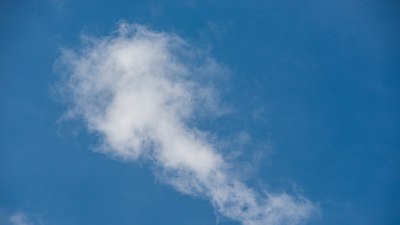Why Even Simple Tasks Feel Dramatic When the Air Is Thick
Explore why thick, heavy air makes simple tasks feel exhausting and dramatic, revealing the science behind this common experience.

Image created with Flux Schnell
Have you ever noticed that on days when the air feels thick and heavy, even the simplest of tasks seem to demand monumental effort? Whether it's carrying groceries, climbing stairs, or even having a short conversation, the sense of exhaustion and drama in these ordinary moments can be overwhelming. This sensation is not just in your imagination; there are physiological and psychological reasons why dense, oppressive air impacts how you perceive effort and energy.
The phenomenon of feeling drained and dramatic during thick air conditions is influenced by a mix of environmental factors and bodily responses. In this article, we will explore the scientific basis behind this experience, dissecting how air quality, humidity, temperature, and oxygen availability work together to affect your body's functions. We will also examine the role of mental perception and mood on how workload feels under these conditions.
The Composition of 'Thick Air'
When people talk about 'thick air,' they often refer to air that has high humidity levels or is densely laden with pollutants. The term can also apply to situations where oxygen is less accessible due to atmospheric conditions. Thick air usually means that the moisture content in the air is high, creating a humid environment that makes breathing feel heavier and stickier. Alongside humidity, particulate matter such as dust, pollen, smog, or industrial pollutants can contribute to the sensation of an oppressive atmosphere.
Humidity is measured as relative humidity—the percentage of moisture the air holds compared to the maximum it could hold at a specific temperature. When air is saturated or near saturation, sweat cannot evaporate effectively, making it harder for the body to cool itself. This leads to increased discomfort and physical strain during activities that usually feel effortless.
Pollutants add another layer of complexity. Airborne particles can irritate the respiratory tract, causing inflammation and constriction of airways. This leads to a feeling of tightness and difficulty in breathing, which can make the body work harder to maintain adequate oxygen intake. The combined effect of high humidity and pollution is a significant contributor to why tasks seem more dramatic.
How Thick Air Affects Oxygen Availability and Breathing
Oxygen is essential for energy production in the human body. When the air feels thick, its actual oxygen content might not be lower, but the ability of the lungs to absorb oxygen efficiently can be compromised. High humidity means the air contains more water vapor, which can displace some of the oxygen molecules in a given volume of air — though this effect is subtle. However, the real challenge lies in how humid air affects breathing mechanics.
Humid air is denser and heavier than dry air. When you inhale this denser air, your lungs have to work harder to pull it in and expel it. Furthermore, the moist air can cause the mucous membranes inside your respiratory tract to swell slightly, restricting airflow. For people with pre-existing respiratory conditions such as asthma or chronic obstructive pulmonary disease (COPD), these effects are magnified and can cause pronounced symptoms.
As breathing becomes less efficient, the body senses a reduction in oxygen availability. This triggers faster breathing rates and increased heart rate in an attempt to compensate for the deficit, which in turn leads to the feeling of fatigue or breathlessness, making even simple physical activities feel strenuous.
The Role of Body Temperature and Thermoregulation
Another crucial factor in the perception of effort during heavy air conditions is thermoregulation or the body's ability to maintain its internal temperature. The human body primarily relies on the evaporation of sweat to cool itself down. When air is humid, sweat evaporation slows or stops because the air is already saturated with moisture. This impairs the natural cooling process, leading to increased body temperature.
When your core temperature rises, your heart works harder to pump blood to the skin surface to release excess heat. This added cardiovascular strain makes physical exertion more difficult, turning even a short walk or routine household chores into challenging tasks. The discomfort caused by overheating can also heighten perceived effort, making minor activities appear dramatically exhausting.
Mental and Psychological Impact of Thick Air
While the physical factors of thick air are significant, the psychological effect should not be overlooked. Sensory inputs such as feeling sticky sweat, shortness of breath, and general lethargy influence mood and motivation negatively. This often amplifies the subjective experience of difficulty during routine tasks.
Studies have shown that high humidity and poor air quality can impact cognitive functions, mood, and emotional well-being. People exposed to these conditions often report irritability, anxiety, and decreased concentration, which can make even simple tasks feel heavier or more dramatic mentally. When your brain perceives the environment as uncomfortable and oppressive, energy levels can dip, further fueling the sensation that everything requires an undue amount of effort.
In cramped indoor environments with poor ventilation, these effects can be exacerbated. The buildup of carbon dioxide and indoor pollutants, along with humidity, creates an stifling atmosphere that negatively impacts both physical performance and mental outlook.
How Altitude and Air Pressure Influence the Feeling of Thick Air
Besides humidity and pollution, altitude and air pressure are natural factors contributing to the perception of thick or heavy air. At higher altitudes, atmospheric pressure decreases, reducing the partial pressure of oxygen and making it harder for the body to absorb enough oxygen with each breath. Although the air might feel thinner rather than thicker, the increased effort needed for physical tasks can feel just as dramatic.
Conversely, in some weather conditions at low altitudes, high pressure systems can increase air density slightly. This can cause the air to feel heavier and more oppressive, often accompanying hot and humid weather patterns. This combination challenges your respiratory and cardiovascular systems similarly to how polluted and humid air does.
Physiological Responses to Heavy Air in Everyday Tasks
When faced with thick, uncomfortable air, your body activates several physiological responses intended to maintain homeostasis. These include increased breathing rate (tachypnea), elevated heart rate (tachycardia), and sweating. While these responses are natural adaptations, they consume more energy and create a sensation of increased effort during tasks that typically wouldn't affect you so much.
For example, climbing a flight of stairs in dry, cool air might take minimal effort, but in hot, humid, and polluted conditions, the elevated heart and breathing rates combined with impaired heat dissipation make the same activity feel exhausting and dramatic.
Muscle fatigue also sets in earlier under these conditions. Inefficient cooling and oxygen delivery reduce muscle performance, further escalating the difficulty of simple movements or activities. This feedback loop between physical strain and environmental conditions intensifies the psychological impression of hardship.
Populations Most Affected by Thick Air Conditions
Certain groups are more vulnerable to the effects of thick air. These include young children, elderly individuals, people with respiratory or cardiovascular diseases, and those with obesity. Their respiratory and circulatory systems are less resilient, making them more susceptible to fatigue, breathlessness, and stress caused by heavy air.
Children’s airways are smaller and more reactive, so pollution and humidity can cause more significant symptoms like wheezing or coughing. The elderly often have diminished lung function and cardiovascular efficiency, which compounds the challenges posed by thick air. Similarly, individuals with asthma, COPD, or heart disease often experience exacerbated symptoms under these conditions.
Pregnant women may also feel additional strain as the demand for oxygen and circulation increases during pregnancy, making thick air even more challenging to cope with.
Mitigation Strategies to Ease the Burden of Thick Air
Although environmental factors like humidity and pollution are often outside individual control, there are practical steps to reduce the impact of thick air on everyday life. Here are some strategies:
1. Stay Hydrated: Drinking plenty of water helps compensate for dehydration caused by impaired sweating and supports better thermoregulation.
2. Use Air Conditioning and Dehumidifiers: These devices reduce indoor humidity and improve air quality, creating a more comfortable environment that eases breathing and cooling.
3. Limit Outdoor Activities: On very humid or polluted days, reducing outdoor exertion can prevent excessive strain on the body.
4. Wear Breathable Clothing: Lightweight, moisture-wicking fabrics can help the body cool more effectively through evaporation.
5. Regular Exercise: Maintaining good cardiovascular and respiratory fitness improves tolerance to environmental stressors, making tasks feel less dramatic.
6. Avoid Pollutants: Minimizing exposure to cigarette smoke, industrial fumes, and dense traffic areas reduces respiratory irritation.
7. Practice Relaxation Techniques: Stress management can influence how effort is perceived, improving psychological resilience during difficult conditions.
Understanding and Respecting Your Limits
Ultimately, recognizing how thick air affects your body helps you adapt and be kinder to yourself when simple tasks feel overwhelming. Fatigue and difficulty in these conditions are not signs of weakness but rather natural physiological responses. Adjusting expectations and pacing yourself are essential to coping effectively.
Listening to your body's signals, such as shortness of breath or dizziness, is crucial to avoid serious health risks. If persistent symptoms occur during exposure to thick air, seeking medical advice is recommended, especially for high-risk individuals.
The Broader Environmental Perspective
On a larger scale, the experience of thick air highlights the urgent need for environmental protection and air quality management. Urban areas facing high pollution and humidity often see increased health problems related to respiratory and cardiovascular diseases. Efforts to reduce emissions, improve green spaces, and develop better infrastructure for cleaner air contribute to making thick air less common and its effects less severe.
Climate change also plays a role, as global warming can increase humidity levels and create weather patterns that favor air pollution, compounding challenges for public health and comfort. Addressing environmental issues at a policy and community level is fundamental to improving day-to-day experiences for everyone.
fWhy Air Thickness Makes Tasks Feel Dramatic
To encapsulate, the feeling that simple tasks become dramatic when the air is thick arises from a combination of:
- High humidity impeding sweat evaporation and cooling.
- Increased air density making breathing more laborious.
- Reduced oxygen availability due to respiratory tract irritation or environmental factors.
- Cardiovascular strain from heat and harder breathing.
- Psychological impacts including mood changes and increased perceived effort.
- Exacerbation of symptoms in vulnerable populations.
- Environmental conditions such as pollution and altitude influences.
Understanding these principles clarifies why seemingly ordinary activities become challenging, providing a scientific basis to validate this common experience and offering insight into how to manage it effectively.











